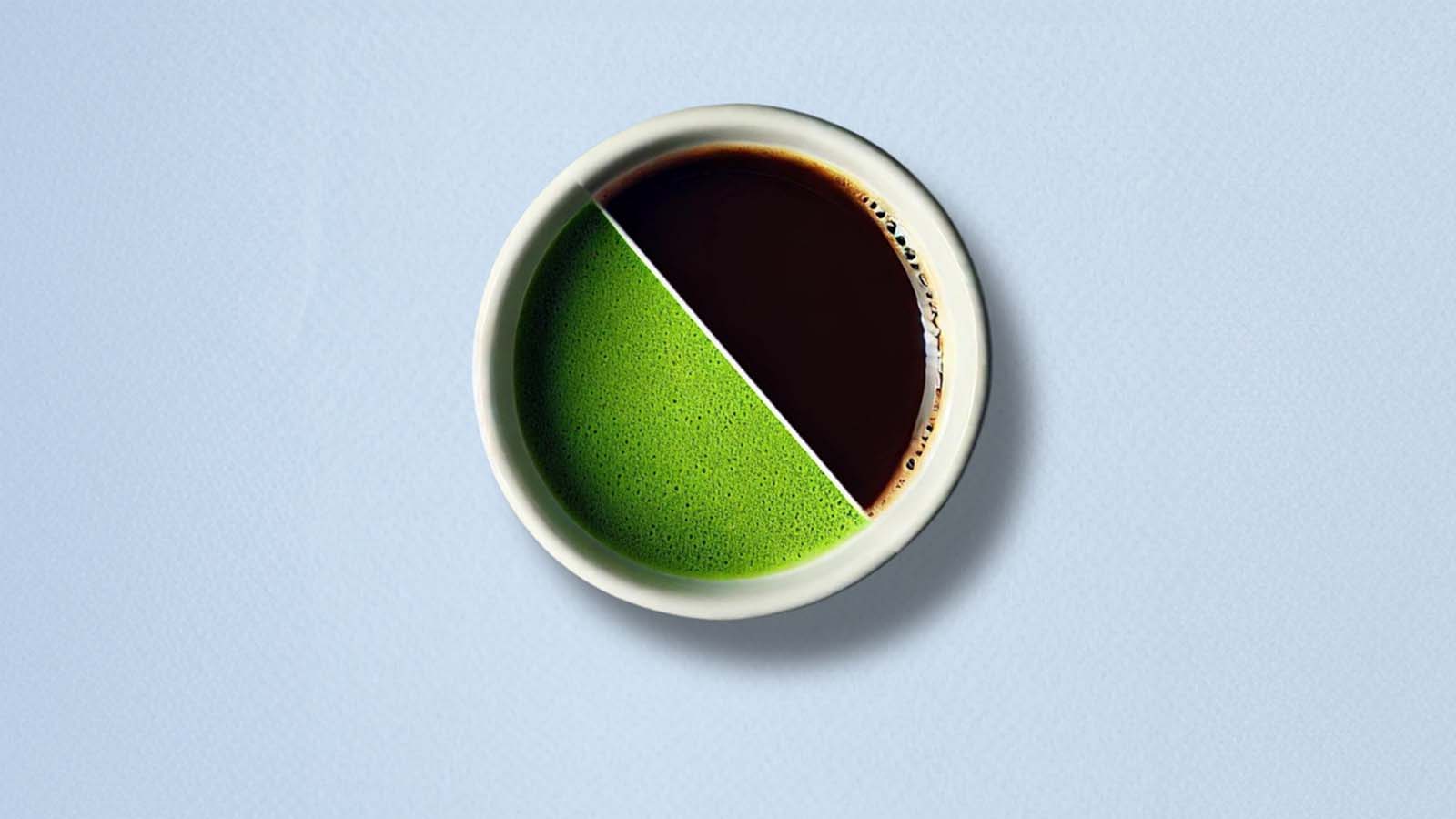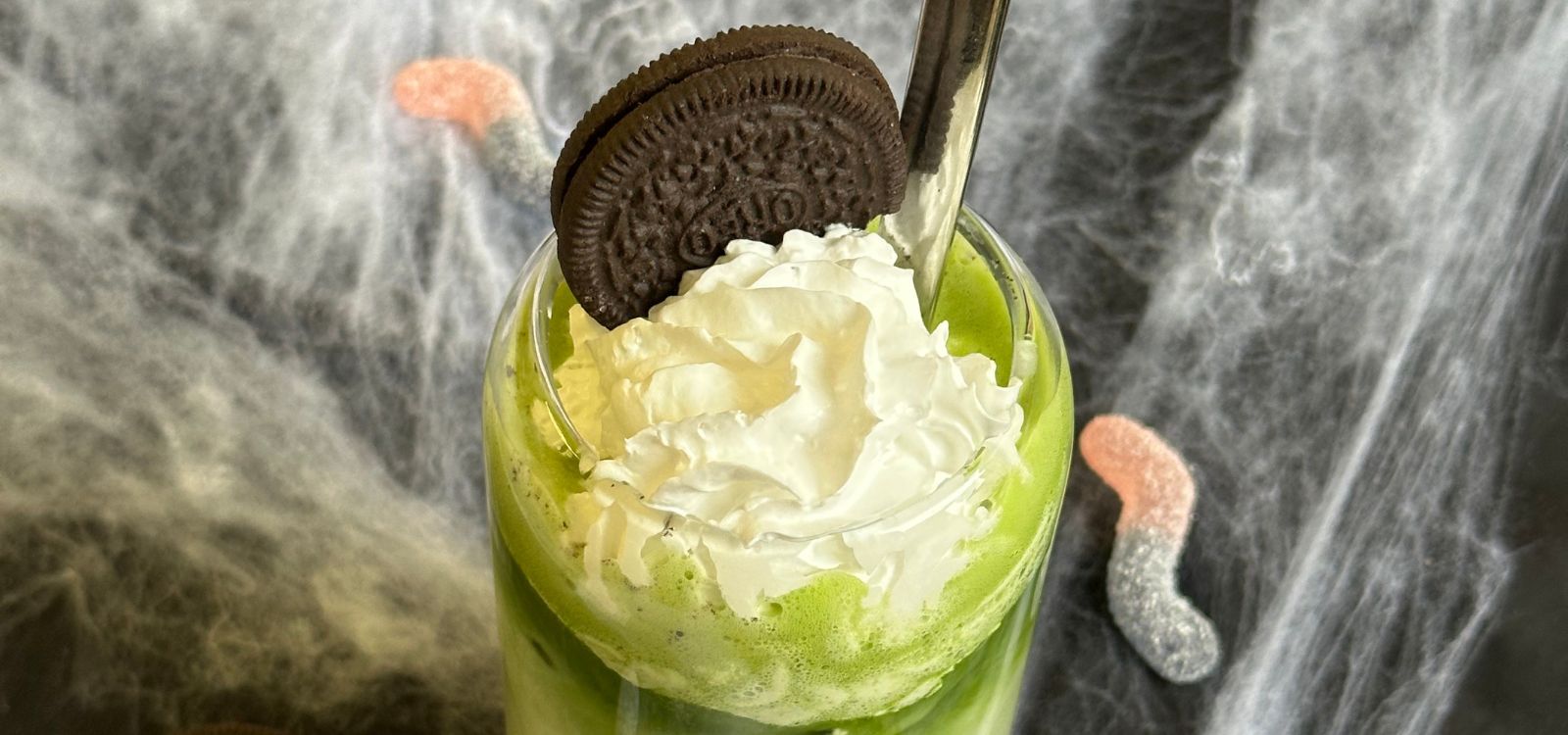Table of contents:
- Matcha vs. coffee: which is the healthier energy boost?
- Matcha and sustainable energy without a caffeine crash
- Antioxidants in Matcha and Coffee: Why Matcha Wins
- Long-term health benefits: Matcha or coffee?
- Conclusion Comparison Matcha with Coffee
Matcha vs. coffee: which is the healthier energy boost?
The debate about whether Matcha or coffee is a better energy booster is becoming increasingly popular. Both beverages contain caffeine, but the effects on the body are very different. Coffee is known for providing a quick energy boost, while Matcha offers a gentler, longer-lasting effect. Studies show that Matcha offers more sustained energy and long-term health benefits due to its unique combination of ingredients, including L-theanine and antioxidants¹ ².
Matcha and sustainable energy without a caffeine crash
One of the biggest differences between Matcha and coffee is how they deliver energy to the body. Coffee contains a high amount of caffeine, which is quickly absorbed and provides an instant boost of energy. However, this is often followed by a "caffeine crash" where energy levels drop rapidly. Matcha, on the other hand, contains less caffeine but combines it with L-theanine, an amino acid that has a calming effect without causing drowsiness¹. Studies show that L-theanine combined with caffeine provides long-lasting, focused alertness without the negative side effects like jitters or insomnia that are often associated with coffee¹. This makes Matcha a preferred choice for people who want a steady flow of energy throughout the day.

Antioxidants in Matcha and Coffee: Why Matcha Wins
In addition to being a gentle source of energy, Matcha is also rich in antioxidants, particularly epigallocatechin gallate (EGCG). These antioxidants are known to fight cell damage and protect the body from free radicals. According to studies, Matcha contains up to 137 times more EGCG compared to regular green tea, making it one of the most potent superfoods². EGCG possesses powerful anti-inflammatory and anti-cancer properties, making Matcha a healthier alternative to coffee, which contains only lower amounts of antioxidants² ³. This high concentration of antioxidants gives Matcha a distinct advantage when it comes to protecting cells and supporting overall health².

Long-term health benefits: Matcha or coffee?
Regular consumption of Matcha is associated with a number of long-term health benefits. Studies have shown that Matcha can reduce the risk of cardiovascular disease, regulate blood pressure, and improve memory and concentration³. The L-theanine contained in Matcha also promotes the production of dopamine and serotonin, which are responsible for well-being and stress management¹. In contrast, excessive coffee consumption can lead to heart palpitations, high blood pressure, and sleep disorders, which can affect health in the long term⁴ ⁵. Matcha's ability to promote well-being makes it an attractive alternative for those looking not only for an energy boost, but also for long-term balance.
Conclusion: Comparison of Matcha with Coffee
While both Matcha and coffee have their own benefits, scientific evidence shows that Matcha is the healthier choice overall. It provides long-lasting alertness, is rich in antioxidants, and has numerous long-term health benefits . For those looking for a gentler, more sustainable source of energy, Matcha is the perfect choice.
Are you looking for a new recipe to match? Click here!

Sources:
¹ Nobre, AC, Rao, A., & Owen, GN (2008). L-Theanine, a natural constituent in tea, and its effect on mental state. Asia Pacific Journal of Clinical Nutrition, 17(S1), 167-168.
² Mancini, E., Beglinger, C., Ott, RF, et al. (2015). Epigallocatechin-gallate (EGCG) affects postprandial lipoprotein metabolism in overweight patients: A double blind, placebo controlled study. Clinical Nutrition, 34(3), 447-452.
³ Cabrera, C., Artacho, R., & Giménez, R. (2006). Beneficial effects of green tea – a review. Journal of the American College of Nutrition, 25(2), 79-99.
⁴ Kim, JW, Hwang, JY, & Ko, JY (2013). Tea polyphenols: Effects on weight loss and obesity. Obesity Reviews, 14(8), 669-680.
⁵ Hamer, M., & Steptoe, A. (2007). Coffee and cardiovascular health: A review of clinical and experimental studies. Nutrition, Metabolism & Cardiovascular Diseases, 17(3), 209-213.




Share: